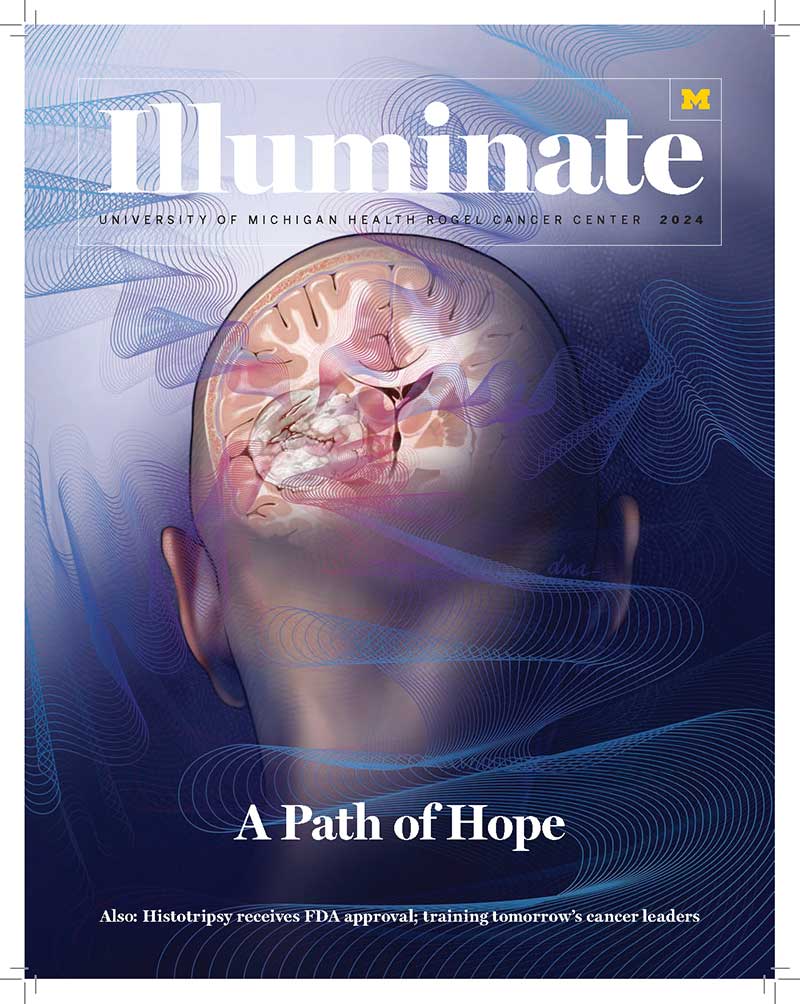Illuminate 2024

A surprising discovery in graduate school led U-M biomedical engineer Zhen Xu to the first non-invasive, non-thermal tumor resection technique using ultrasound. Twenty years later, she and a team of Rogel researchers have received FDA approval to treat patients with liver cancer. Here’s how they did it.
While brain cancers are not always lethal, the most common form, glioblastoma, is aggressive and incurable, with a median survival of one and a half years. A team of researchers, foundations, and families have pushed Rogel to the forefront as a hub for cutting-edge brain cancer research.
Rogel’s summer training programs expose students early on to cancer career options, hoping to foster a passion for the field and lifelong connections.
Rogel has become a center of excellence in pancreatic cancer research, combining pioneering research with innovative clinical care and an array of clinical trials. Marina Pasca di Magliano, Ph.D., explains why the key to a robust research program and responsive care lies in collaboration.
As part of our Next Generation features, meet Abhijit Parolia, Ph.D. He's a molecular biologist and has launched his own independent lab as a tenure track assistant professor at the Rogel Cancer Center.
As part of our Next Generation features, meet Amanda Garner, Ph.D. The Garner Lab at Rogel is celebrating its 10th year working at one of the final frontiers in drug discovery—the search for and development of RNA-targeted therapeutics for cancer and other diseases.
As part of our Next Generation features, meet Paul Swiecicki, M.D. He's a molecular biologist and has launched his own independent lab as a tenure track assistant professor at the Rogel Cancer Center. In January, 2024, he was named inaugural associate medical director for the Oncology Clinical Trials Support Unit (O-CTSU).
